The Writing Life of: Helen Bell
Helen Bell
This week I am thrilled to be interviewing author Helen Bell. Helen Bell will be sharing with us details of her writing life, telling us all about her book ‘Playing a Dark Game‘, which was released on 1st November 2017 and answering a few fun questions too. This post contains affiliate links.
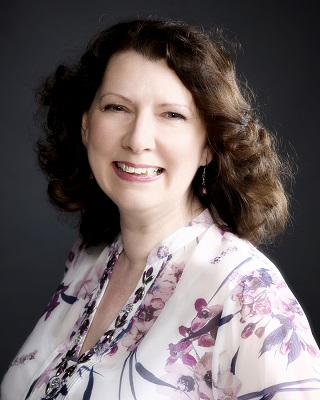
Helen Bell is the writer of Young Adult/Crossover fantasy. Author of the Ilmaen Quartet.
The first two books in the series were published in 2015, and the third, Playing a Dark Game, was released in 2017. All are available in both ebook and paperback. (A release date is not yet announced for the final book in the quartet, An Empty Fade.)
Shadowless and Restoring the Light have been compared to Percy Jackson, Harry Potter and Lord of the Rings, with Playing a Dark Game summarised as “Like ‘Game of Thrones’ without the headcount.”
Hi all! Some obscure facts about me: Helen Bell
I was once barred from a Dagenham pub (for a whelk and cockle food fight). I blame the folk I was with. The landlady claimed they had previously stolen a pool table from the place. A full-sized one. During opening hours.
I worked for 16 years in defence science research. It’s fine to ask about it; the Head of Security says I won’t have to shoot you (though that could be in the belief that what I did will bore you to death).
The first time I was in an earthquake I didn’t realise and had to be told.
1) Did you enjoy writing when you were a child?
I did, but I was more into arts and crafts, and drama. I recall being an incompetent fairy in a primary school play called Mustard Muddles Through. Then at secondary school a friend and I did two-handed improvisations, often as grumpy old ladies – which we are now!
I think a love of drama is why I particularly enjoy writing dialogue; getting that balance right between something that sounds like it’s someone’s raw thoughts coming out, and giving it a tiny polish so a character’s words really hit home.
2) Which author shaped your childhood?
Time and again I re-read the wonderful CS Lewis. I didn’t think much about writing technique and structure as a child, but since then I have realised that the way he wrote – straightforward, accessible language, the ordinary world somehow blossoming into the extraordinary, and the characters likewise – that has been inspirational.
I have a solid fondness for the less popular stories – The Horse and His Boy, The Silver Chair – I think because he must have written them with more commercial pressure, but still kept them wonderfully compelling and true to the world he had created. He sowed the seeds of me becoming a writer.
3) What motivated you to begin your first novel?
Around 15, I knew I wanted to study history and archaeology. My schools had been good on the Roman period and Renaissance-onwards history (though very UK- and western-biased), but what really interested me was the Dark Ages; they seemed mysterious and out of reach. Where had the tribes come from, and why? How did they get here, and what happened when these different people met and mingled and fought and finally got along, creating amazing cultures as they did? I was intrigued by the Byzantine empire in particular, so a teacher recommended a couple of novels to get a better feel for it. One was a children’s novel: The Dancing Bear by Peter Dickinson.
Well, I read it and was blown away. The world the characters lived in was so very alien to me. He completely captured Constantinople’s cultural differences and early Christianity’s sectarian mindset. (I doubt it would have held many surprises for people from Northern Ireland, say, or countries where Sunni and Shiite Muslims live side by side, but for me it was a real light-bulb moment.) He takes you into such different heads. You can go from a boy for whom slavery is no big deal until he grasps the danger it puts him in, to a religious hermit who has spent decades in all weathers on top of a narrow pillar, while the rest of the world passes by below. I was consumed from then on by one thought: I had to learn to world-build like this, to write characters like this! I had no idea what or who I was going to write about, but the thought wouldn’t let me go and it still hasn’t. All those characters whose stories I haven’t finished yet are nagging at me from the back of my head, saying: ‘Why haven’t you got to the end of my story?’
4) Do you plot your book, or are you a pantser?
Both. I usually have an outline plot, A to Z and some waypoints in between, but an awful lot is driven by the characters and what they decide to do. It can make for very slow writing – nearly 40 years from my first idea to the first published book, largely because it took so long to tease out one of the main characters. Still, it’s immensely rewarding when they take you off somewhere amazing you hadn’t thought to go.
In Playing a Dark Game there’s a scene between the main character Renia and her estranged cousin Landar. It needed to happen so Renia could learn more about her past, but once I’d sat them down, the pair of them took the scene and owned it – and there will be serious consequences to that meeting in book 4.
5) What is your average writing day?
I don’t write (at least not fiction) every day. This is considered a heinous crime by many, but tough, they’ll have to suck it up as I’m unlikely to change. I don’t make enough money from writing to do nothing else, so I work part time for a federation of GP surgeries. I also volunteer with the MS Society; I’m a Group Coordinator, supporting people affected by Multiple Sclerosis across Surrey. I’ve done that for 15 years and I don’t plan to give that up, particularly since I was diagnosed with it myself 18 months ago. I’ve used the same office space during lockdown for all three roles, and I’m not the world’s tidiest person, so there are often 3 piles of stuff on my desk at the same time.
My average writing day would best be described as ‘unproductive’. The pandemic hasn’t helped. My levels of concentration are low anyway with MS so I only manage a few hours of writing at a time. To counter this, the night before a planned writing day I will go to bed thinking about a scene. If I wake up in the night I’ll think about it a bit more; and sometimes I’ll scribble some ideas down in a notepad by the bed, hoping that when I get up it will help the writing flow. If you believe author Joanne Harris’s Twitter account, my writing days are not dissimilar to hers – a stack of procrastination followed by tea. Some people have writing playlists, I certainly do but I find music can either help or hinder, so it goes on or off as needed.
My output is maybe 500-1000 words per writing day. I refuse to be shamed for this. Ben Aaronovitch has regularly tweeted his daily word count during lockdown. He even has the occasional single word day – and he is a prince of writing in my eyes!
The thing is, if writers keep going, it all mounts up. Nor do I follow the advice to just write as fast as possible and come back to edit later. If it doesn’t feel right I have to deal with it there and then, or else I put a note in to summarise what that scene should cover, and move on to another part. I’m not a very productive writer, so I’m never likely to be a rich one, but I’m determined to always be a good one.
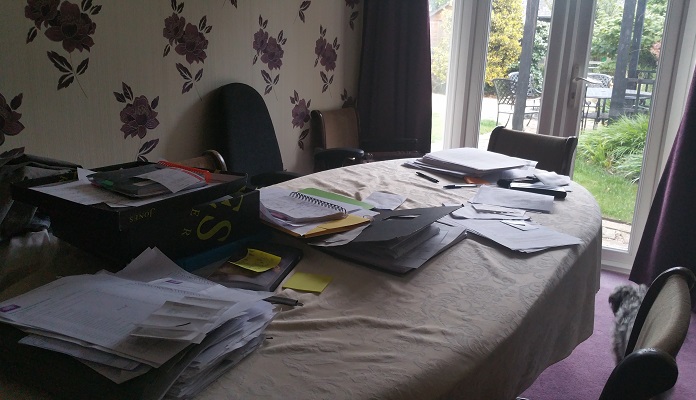
Where Helen Bell Writes
6) What is the best thing about being an author?
There are 2 best things in my opinion:
First is the Yes! moments where everything lines up and the next steps fall into place for both the story and the characters. I get Yes! moments a few times a month for the current WIP, which is encouragingly more than previous books.
Second is when I get introduced to someone and one of my books is mentioned and they say excitedly: ‘Oh wow, you wrote that?!’ It doesn’t happen often, I’m not famous enough, but when it does it’s a great motivator.
Ilmaen Quartet Book Three
Publisher – Light-Carillon Publishing
Pages – 401
Release Date – 1st November 2017
ISBN 13 – 978-0993259951
Format – ebook, paperback
Synopsis
YOU CAN’T CHANGE THE PAST. PRAY YOU CAN CHANGE THE CONSEQUENCES.
Far-seer Renia thought her part in restoring the Crown was over, but again her life has turned upside down. None of this is playing out as she expected – and it’s hard to tell if that’s good or bad. Even a far-seer can’t know everything ahead.
Soon she and everyone she loves are going to find that every action has consequences, as they are each taken on a twisted journey through political power games and dangerous secrets.
It’s left to Renia to dig deep into her past, and Lemno’s, to learn the truth behind his quest to destroy the Crown and his brother, Kerin. She knows that even in exile, Lemno is still a threat. Now she fears he intends her to be the catalyst for his revenge.
Kerin has offered her a fairy-tale ending and she longs to follow her heart; but should she?
WHAT IF THAT’S THE GAME LEMNO WANTS HER TO PLAY?
Purchase Online From:
7) How did you go about researching the content for your book?
Playing a Dark Game is third in a series so there was a lot I had already covered, but to give the reader the depth of experience I wanted them to have, three things had to be right. Those were the locations, any expertise the protagonists have, and various illnesses, conditions and experiences they face.
Locations first. Playing a Dark Game is set 500 years in the future, in what is now Western Europe, and I’ve been lucky enough to visit many of the locations. (My other half is very patient with my choice of holiday destinations and penchant for snapping pics of everything but us.) Where I haven’t been to a place, Google Maps and Images are a great help. They lead you to local websites with yet more inspiring images, and photos that people have uploaded. A beautiful view or a tiny architectural detail or a bit of clothing or a plate of food; or whether a river runs narrow and deep or wide and shallow – it can all capture a place and help you describe it more evocatively. I use Pinterest to hold mood boards as I write – here’s the one for Playing a Dark Game. Once a book is out I do Instagram posts using images that have caught my eye. They give followers who might not be readers yet a flavour of the book, and serve as reminders for me when working on the next in a series or a related short story. (If you do the same, always pick images that don’t breach copyright and give the artist the right Creative Commons credit.)
Sometimes a location can steer the direction of the story too. Among the new places I researched for Playing a Dark Game was a small Mediterranean port called Sète, near Narbonne. I went along on the off-chance it would be right for the plot and it was perfect – so perfect it is now the town where a new character in book 4 grows up, because it ticks all the boxes for her story too.
Where a character has a skill that drives the plotline, I will always research it. For Kerin it is sword fighting. I have never done it and I’m never likely to – I can barely lift many European swords, let alone wield one – so the more widely I can read up on it and talk to people who have had the experience, the better. There is a lot of Japanese influence on the swordcraft and sword training my characters have had, so I studied Japanese sword-fighting manuals to help me understand the weapons, techniques and mindset, plus I visited the relevant galleries in Leeds Armoury and watched YouTube sword-fighting demonstrations. The Art of War was a go-to book and helped with the political as well as the military machinations, but there are western influences as well, so I also used ideas from Von Clausewitz’ On War, especially for logistics (moving people and supplies).
Often it’s little things that make a tale come to life. The apocalypse backstory to the series means the people of Mhrydain and Ilmaen come from the most isolated reaches of Europe, not to mention further afield. We are talking the mountains of Wales, the tundra of Finland and Norway, the Steppes, Saharan and sub-Saharan Africa. Welsh is the native language of some key Mhrydaineg characters, while Ilmaenese is a mishmash of Finnish, Arabic and various, mostly African, languages. But my primary audience is English-speaking, so I only use other languages where it adds to the story. It might remind us of someone’s ‘otherness’ in a situation, emphasise someone’s pride in their origins, or allow for someone being so tired or angry they can’t remember the words they need in their adopted language. Sometimes I use it so a character can have a good swear!
People get ill and injured in this story, as in real life. The effects may be visible and other characters can see and comment on those, but all illnesses and injuries have invisible effects on characters. For instance, Kerin’s injuries undermine his confidence; while Darona’s crippling condition means she has time to plot to distract her from her pain. And woven throughout the series is The Fever. It is not any specific illness but is based on potential virus mutations. (There is a still-to-complete prequel that goes into more detail, so no spoilers here.) Unlike Covid-19, The Fever is nearly always deadly. I had to look at a range of illnesses to understand how going through that would feel, how others would react, and what it might mean to be one of the few to survive it.
Even after all the pre-research and making notes, there is still a lot of on-the spot research. I will get going, only to realise there is something I missed at the planning stage. I have to resolve it there and then because otherwise it will be too distracting.
8) How long did it take to go from the ideas stage to writing the last word?
I mentioned it was 40 years from first ideas to publication – that really covers books 1 and 2. I was learning how to write well for most of that time, as well as understanding my characters and finessing the plot, but I was also learning how to construct a story. It’s a bit like pitching a tent: if you get the framework up first it gives you something to drape your canvas over from the start. Much better than floundering around in the dark, trying to work out where you left the tent poles.
In comparison to the first 2 books, I knew where Playing a Dark Game was going almost from the start, and I had a much clearer picture of the framework it needed. I shamelessly borrowed from Daphne Du Maurier’s Rebecca, in that Renia is haunted by her nemesis and unable to escape his presence, even though he never appears in person. A bit of pantsing never hurts, though. I had to rush to complete one missing scene, but that inspired an unplanned twist on the last page and a whole new character for book 4. I might never have thought of it but for the rushed scene.
I don’t think my writing formula is fixed, even now. For book 4 I didn’t finish an A to Z plan before I published book 3, and that was deliberate. I knew there was going to be a gap of many years before we caught up with the characters again, so other than some specific scenes that demanded I write them straight away, I decided to let my thoughts marinate. With hindsight it was the right thing to do. I’m needing all my life experience to make a good job of the characters grown older, with children of their own. That said, I’ve known the last line on the last page of book 4 for an awfully long time. It’s the stuff in between that’s still evolving.
9) What made you choose the genre you write in?
I’ve always loved fantasy and sci-fi, but so much of the best fantasy is written for or steered towards children so I kept it to that age group’s level. The story gets darker for sure, but children always love a bit of darkness in their stories. I seem to appeal to older readers too, so I consider this series a YA/fantasy crossover. I’m also a sucker for a good romance (i.e. unrequited or stormy), so there’s a good dollop of that too.
10) How did you come up with the name(s) for your lead character(s)?
In all honesty, for the original protagonists I can’t remember, other than I liked the sound of them when reading out loud. All the diminutive names are due to my east end/Essex background. It’s what we do with family and friends – I struggle to avoid shortening names, it’s such a habit.
Many of the Ilmaenese characters use a traditional naming convention. Kerin helpfully explains how that works in book 1. And of course, some names we use now are still being used in the future.
11) Can you give us an insight into your characters?
They have been through a lot in books 1 and 2 and they had no expectation that things would end quite as well as they have. It is soon apparent that the happy ever after is not what it seems, and some characters are just waiting for the other shoe to drop.
Restoring the Crown to his rightful place has driven Kerin’s every move since we first met him. Now it has nearly killed him, and it has put Renia in more danger than ever. He is back in his own world, but he is struggling. He has survivor guilt, he has made a promise to Renia that he may find hard to keep, and he is questioning everything he thought was meant to be.
Meanwhile Renia has learnt something unexpected from their enemy Lemno. He has fled, leaving her unsure what his revelation means. One thing is clear: she must share it with Kerin, even if it threatens her happiness – maybe her life too. So she sets about digging into her past and discovers it is even darker than she first feared.
Jesral and Vel have been thrust headlong into new roles and feel like imposters. They came to Ilmaen looking for a new life, and Vel has finally found his long-lost family, but it is neither the life they were expecting nor the welcome they hoped for. The trouble is, turning their back on it may not be an option.
Courageous young Penor has done so much to help all of them and lost so much in the process. There is only so much one person can take before they break beyond repair. Penor may have found his limit.
And Cedas remains annoyingly essential to getting them through all these challenges. As usual, whenever he sets a hand on another character’s shoulder, the reader wonders whether he means to reassure them or stab them in the back.
There is also a new cast of characters, any of whom could turn out to be ally or enemy, and they have little time to find out which.
12) How did you feel when you had completed your book?
I was quietly excited. My latest creation was out! I loved the cover! People were reading it! I had a lot of ‘I can’t wait for the next one to be out’ from readers of the first two books to keep me going, though that is both a blessing and a curse. ‘What if they don’t like this one?’ inevitably goes through your head.
There was personal satisfaction from meeting the targets I’d set myself, too. I’d promised myself I’d have three books out in two years – that job was done. And the book was set to allow pre-release ordering on some platforms. They will impose penalties if you don’t publish by the agreed date. It’s a relief to know I hadn’t fallen foul of that – because if I had, I would have short-changed my most loyal readers.
Fun Questions

1) Do you have a favourite quote you live by?
‘Do as you would be done by’.
2) Do you have any pets?
We are down to two cats and two dogs – we were a major menagerie at one time when a daughter’s friend was staying with her cat, two bearded dragons and a varying number of African land snails (they’re cannibals). You can’t dump the snail eggs in case they get into the ecosystem, so this friend would bag them up and put them in the freezer to kill them humanely. Getting to the ice cream was like a whole new horror genre.
The cats don’t hang around for pictures, so here are the dogs. (Before anyone asks, Mally is not smoking. She has just ripped the stuffing out of yet another soft toy)
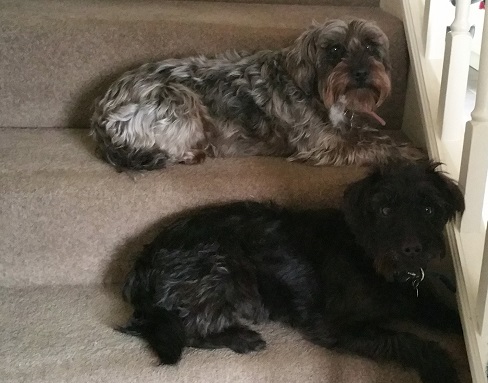
3) What’s on your current reading list?
This year I’ve discovered NK Jemisin and I’m working my way through several of her series. From time to time I download Amazon Prime free reads, because there are some amazing indie authors out there to be discovered. Then I plan to read some Nnedi Okorafor and Al Hess, because their stuff looks amazing.
4) Your book has been made into a feature film, you’ve been offered a cameo role, what would you be doing?
The only one I could come near to doing would be Darona, one of the new characters. She’s older and calculating and gets to sit around a lot scheming, so not too much of a push for my acting skills. Only I already know the actress I really want to do that role. I would demand NOT to play Darona if she were in the running!
5) If you could travel to the fictional world of any book for the day, which would you choose?
I’d go to Narnia. I need tips from the talking dogs because after 12 years, I’ve still no idea what’s going through the heads of my two most days. All the barking at the window because a paper bag has blown down the street – what’s that about?
6) There’s a penguin sitting in your writing chair, what is the first thing he says to you?
If it’s in my chair it’ll be the chocolate kind. It won’t be there long enough for anyone to find out.
I would like to say a big thank you to Helen Bell for sharing with us details of her writing life and for a wonderful interview.


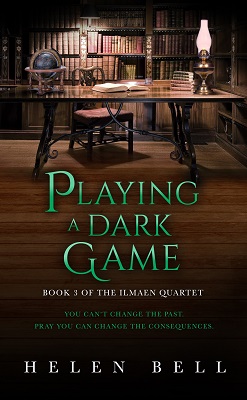






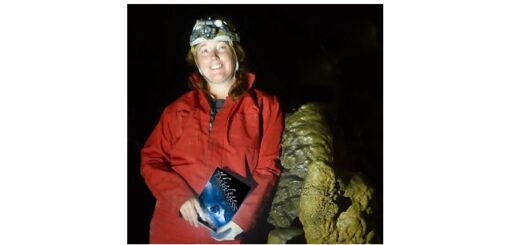
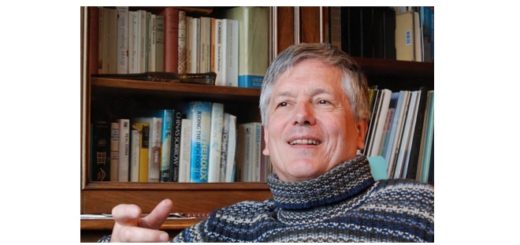

She sounds fun but her books sound intense
Playing a Dark Game sounds interesting. Great interview.
I thoroughly enjoyed this interview. Thanks for sharing. 🙂
It’s the first I am hearing of this author. Thanks for sharing the interview. It was enlightening.
I love your interviews! Thank you for introducing me to these books!
Excellent interview. I am always here for the pet pics.
I’m happy that you enjoyed Helen Bell’s interview and agree about her book sounding intense.
I’m glad that I have introduced you to a new author.
I totally agree I think Helen Bell’s book does sound interesting. Thank you.
I’m glad that you enjoyed Helen Bell’s interview. You are very welcome.
That is so lovely to hear, I’m glad that you enjoy the interviews.
That’s for your positive feedback of Helen Bell’s Interview. I’m glad that you love the pet pictures too.